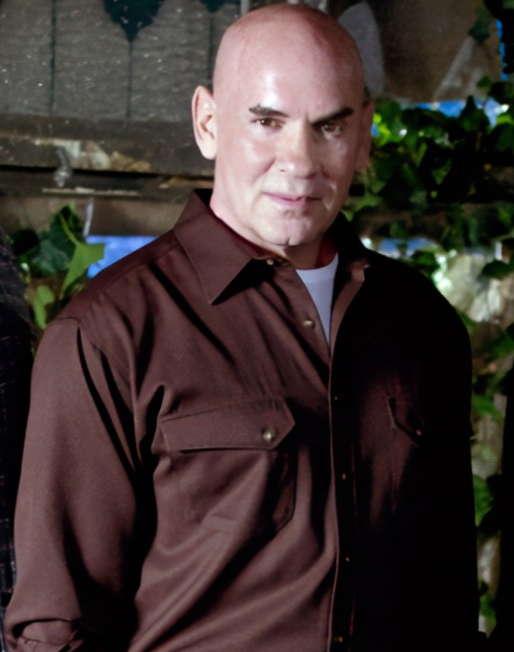
The individual who wants the spiritual prizes of life must elevate one’s thoughts and ennoble one’s impulses. One will prudently look ahead not only to the consequences of one’s actions but also of one’s thoughts. One must be prepared to spend a whole lifetime in making this passage from aspiration to realization. Petal-by-petal the bud of one’s growing virtues will open as the years pass. One’s character will be transformed. The old Adam will become a new man. The progressing disciple who reaches an advanced state will find that one’s powers of mind and will develop accordingly. Where they are not accompanied by sufficient self-purification, they may become dangerous to oneself and hurtful to others. One’s vigilance over thought and feeling must become greater accordingly. To dwell upon thoughts which belong to a lower level out of which one has climbed may open up a pitfall in one’s path; to hold bitter feelings against another person may throw discord into that person’s life. One’s outer conduct should be brought into agreement with the soaring aspiration of one’s inner life. When the one is antithetical to the other, the result will be chaos. That individual has attained mastery whose body yields to the commands of reason and whose tongue obeys the orders of prudence. #RandolphHarris 1 of 20

When the body’s appetites and the intellect’s curiosity get an excessive grip on an individual, they throw an air of unreality on aspiration which soars beyond both. This makes intuitive feeling and metaphysical thinking seem irksome or trivial. Those who do not have the strength of will to translate into practice the ideals which they accept in thought need not despair. It can be got by degrees. Part of the purpose of ascetic exercises is to lead to its possession. There is knowledge available, based on ancient and modern ascetic experiences, which can be applied to liberate the moral nature from its weakness. One who puts one’s lower nature under control puts oneself in possession of forces, gifts, possibilities, and satisfactions that most other humans lack. If a person’s inner life is repeatedly wasted by passion, one will know no assured peace and attain no enduring goal. One must govern oneself, rule one’s passions, and discipline one’s emotions. One must strengthen one’s higher will at the expense of one’s lower one. For the first promotes one’s spiritual evolution whereas the second inflames one’s animal nature. Faith is needed to make the basic change in one’s thinking, the change which takes one out of the past’s grip. If one takes up new thoughts, a new life is possible. If one lets compromise with the World, or lapses from the right moral standard, slip beyond a certain mark, one will pay commensurately for it. #RandolphHarris 2 of 20

Man’s drives inasmuch as they are trans-utilitarian, are an expression of a fundamental and specifically human need: the need to be related to man and nature and to confirm oneself in this relatedness. These two forms of human existence, that of food gathering for the purpose of survival in a narrow or broader sense and that of free and spontaneous activity expressing man’s faculties and seeking for meaning beyond utilitarian work, are inherent in man’s existence. Each society and each man has it own particular rhythm in which these two forms of living make their appearance. What matters is the relative strength which each of the two have and which one dominates the other. It is not only a matter of self-betterment but also of self-respect for an honourable man. The man whom he has looked upon as himself must be left behind; the New man, who he is to become, must be continually with him in thought, aspiration, will, and deed. This it is to be truly human for it brings man into a more perfect state. To sneer at the philosophic ideal as being inhuman is really to sneer at it for rejecting the evils and weaknesses and deformities of the Worldly ideal. The moment a negative idea appears, repudiate it automatically by the use of counter-affirmations and imagination, which is the gate to creative subconscious mind. #RandolphHarris 3 of 20

Such negative thoughts as animosity and jealousy must be rooted out like weeds as fast as they spring up. This is both the easier and more effective way in the end. The man who has not learned to control himself is still only a fractional man, certainly not the true man that Nature is trying to produce. When he cannot live with his negative side any longer, illumination will come and stay. Character is tested by afflictions more than by prosperity. The first stage is to expunge the evil in his heart and to raise the good in it to the highest possible octave. If he holds these as ideals, a personal character which will be beautiful, a way of life which will be the best, a man is more likely to come by them. When allowing thoughts to enter his mind, as when allowing strangers to enter his home, he needs to be as fastidious. If a man lives in mental and emotional negativity, the removal of his physical residence to another place will in the end benefit him less than if he removes himself from the negativity. The building-up of character naturally brings a better sense of proportion in one’s dealings and outlook. Be seeing good in all persons, you become good, but if you see evil, the evil in you will augment. People seem not to see that their opinion of the World is also a confession of character. We can only see what we are. #RandolphHarris 4 of 20

He must become thoroughly sick of his mistakes and sins before he will take the trouble to develop by self-training his discriminatory faculties and moral ideals. We can combat feat by remembering that the Overself is always with us. The power of such thinking is its rightness and its constructiveness. It is right bvecause the Overself is the real source of strength and courage so that recalling its ever-presence in us helps to tap that source. It is constructive because it uses up the energy that would otherwise have gone into the fear-thoughts. Both action and thought share in the double nature of this polarity. Activity on the level of survival is what one usually calls work. Activeness on the trans-survival level is what one calls play, or all those activities related to cult, ritual, and art. Thought also appears in two forms, one serving the function of survival and one serving the function of knowledge in the sense of understanding and intuiting. This distinction of survival and trans-survival thought is very important for the understanding of consciousness and the so-called unconscious. Our conscious thought is that type of thinking, linked with language, which follows the social categories of thought imprinted in our thinking from early childhood. Our consciousness is essentially the awareness of such phenomena which the social filter composed of language, logic, and taboos permits us to become aware of. #RandolphHarris 5 of 20

Those phenomena which cannot pass the social filter remain unconscious or, more accurately speaking, we are unaware of everything that cannot penetrate to our consciousness because the social filter blocks its entry. This is the reason why consciosuness is determined by the structure of society. However, this statement is only descrptive. Inasmuch as man has to work within a given society, his need for survival tends to make him accept the social conceptualizations and hence to repress that which he would be aware of had his consciousness been imprinted with different schemata. If he studies other cultures, this is not difficult for the reader to find in his own example. The categories of thought in the industrial age are that of quantification, abstraction and comparison, of profit and loss, of efficiency and inefficiency. The member of a consumer society of the present day, for example, is encouraged, but not required to repress pleasures of the flesh because so many people are Worldly and pleasures of the flesh seems to be the number one past time for many by the schemata in the age of information. The member of the middle class of the nineteenth century who was busy accumulating capital and investing it rather than consuming it, had to repress pleasures of the flesh because they did not fit into the acquisitive and hoarding mood of his society, or, more correctly, of middle classes. #RandolphHarris 6 of 20

If we think of medieval or Greek society or of such cultures as the Pueblo Indians’ we can easily recognize that they were very conscious of different aspects of life to which their social filter granted entry into consciousness while others were tabooed. The most eminent case in which man does not have to accept the social categories of his society is when he is asleep. Sleep is that state of being in which man is free from the need to take care of his survival. While he is awake, he is largely determined by the survival function; while he is asleep, he is a free man. As a result, his thinking is not subject to the thought of categories of his society and shows that peculiar creativity which we find in dreams. In dreams, man creates symbols and has insights into the nature of life and of his own personality which he is incapable of having while he is the creature busy with food gathering and defense. Often, indeed, this lack of contact with social reality can cause him to have experiences and thoughts which are archaic, primitive, malignant, but even those are authentic and represent him rather than the thought patterns of his society. In dreams, the individual transcends the narrow boundaries of his society and becomes fully human. That is why Dr. Freud’s discovery of dream interpretation, even though he looked basically for the repressed instinct for pleasures of the flesh, has paved the way for the understanding of the uncensored humanity which is in all of us. (Sometimes children, before they have been sufficiently indoctrinated by the process of education, and psychotics who have served all relationships to the social World manifest insights and creative artistic possibilities which the adapted adult cannot recover.) #RandolphHarris 7 of 20

However, dreams are only a special case of that trans-survival life of man. Its main expression is in rituals, symbols, painting, poetry, drama, and music. Our utilitarian thinking has, quite logically, tried to interpret all these phenomena as serving the survival function (a vulgarized Marxism has sometimes allied itself in substance although not in form with this type of materialism). More profound observers like Lewis Mumford and others have emphasized the fact that the cave paintings in France and ornaments on primitive pottery, as well as more advanced forms of art, have no utilitarian purpose. One might say that their function is to help the survival of man’s spirit, but not that of man’s body. He has only to resolve that he will always be faithful to his higher self and the trick is done. However, alas! resolution is one thing, execution another. If he finds himself attacked by a strong temptation or about to be overcome by an old obsession, he should at once think of the master, of his name and picture, and call for his help. Whether you live as a labourer or a lord, it is your character that counts most in the end. It is the ego that gives way to moods of sulkiness, bad temper, irritability, and impatience. Remember that on the outcome of your efforts to control yourself, your faults and emotions, your speech and your actions, much will depend for your Worldly and spiritual frame. He who controls the mind controls the body, for the one acts upon and through the other. #RandolphHarris 8 of 20

To yearn for something is to value. I have known this yearning “to be good” in all of us. No one is left out. I have known it in a British peer. I have known it in a man who hijacked a truck, got a Native American drunk and threw him off a moving truck, hit a burro and killed it, bashed in the radiator, and then drove the truck until the motor burned out and he landed in jail, while four small children were at home alone because their mother was in the hospital having a fifth one. I got him out of jail so that he could take care of his family, and he got me fired from my job. I also knew it in my best friend that killed himself. Before his suicide, I lived with knowing that he might kill my son and me, both of whom he loved, and that he might seriously injure other people, which he did not wish to do at all. It seemed to me that suicide might have seemed to him the only way to put an end to his hurting people, to doing what he did not want to do. Many people in America are hurting today. Everyone responds in terms of his own humanness, uncontaminated by all the phoney values with which we live. (The only exceptions were two very neurotic men and a few feeble-minded oldfolks who did not know what is going on.) In Hawaii during the week following the Japanese attack on Pearl Harbour, the military expected that the success of the attack would be followed by an invasion: they believed that when the Japanese planes reported to their carriers, then other ships would move in with troops like what was done to Mr. Hitler and Germany during World War II. #RandolphHarris 9 of 20

However, fast forward to post 911 America. Currently in 2024, there is an invasion going on at our southern boarder, and as many as 20,000,000 unknown people have flooded into this country and have been committing major crimes. The leaders of industry have warned the government that this is a serious crisis and they suspected that these people who are invading America could be preparing for an attack larger than 911, but no one in a position of power is doing anything to track these people, nor stop them from invading the nation. The problem is not only a lack of God, but also a lack of love. Many people are cafeteria Americans. They fly the flag, pretend to be proud of the country, but all they care about is American money. They disrespect the land, disrespect the people, ignore the needs of America and bleed her dry. These posers forget that people have died and become severely disabled from serving their country, and are doing nothing to protect it, but supposedly are trying to instill democracy in other places, while America is becoming a hostile, communist nation. It is very difficult for me to go on writing this. Tears blur my vision, no matter how many times I wipe them away. I sob, and that shakes me so that I cannot use the typewriter very well. I feel, “Oh, what is the use? How can I possibly convey it?” Many of us are silent. Trying to show respect or trying to feel for someone else. When they are scared, people can do the most frightful things. People fear that they could be wiped out at any moment, and that there is onluy now to live. We pay so much attention to where we live, so little to when. #RandolphHarris 10 of 20

Alienation corrupts and perverts all human values. By making economic activities and the values inheret in them, like gain, work, thrift, and sobriety, the supreme value of life, man fails to develop the truly moral values of humanity, the riches of a good conscience, of virtue, etcetra, but how can I be virtuous if I am not aware of anything? In a state of alienation, each sphere of life, the economic and the moral, is independent from the other, “each is concentrated upon a specific area of alienated activity and is itself alienated from the other. The needs of man in an alienated society are preverted into true weakness. Every man speculates upon creating a new need in another in order to force him to sacrifice, to place him in a new dependence, and to entice him into a new kind of pleasure and thereby into economic ruin. Everyone tries to establish over others an alien power in order to find there the satisfaction of his own egoistic need. With the mass of objects, therefore, there also increases the realm of alien entities to which man is subjected. Every new product is a new potentiality of mutual deceit and robbery. Man becomes increasingly poor as a man; he has increasing need of money in order to take possession of the hostile being. The power of money diminishes directly with the growth of the quantity of production, id est, his need increases with the increasing power of money. #RandolphHarris 11 of 20

The need for money is therefore the real need created by the modern economy, and the only need which it creates. The quantity of money becomes increasingly its only important quality. Just as it reduces every entity to its abstraction, so it reduces itself in its own development to a quantitative entity. Excess and immoderation become its true standard. This is shown subjectively, partly in the fact that the expansion of production and of needs becomes an ingenious and always calculating subservience to inhuman, depraved, unnatural, and imaginary apopetities. Americans are blessed with private property, but they do not know how to change crude need into human need; their idealism is fantasy, caprice and fancy. No eunch flatters his tyrant more shamefully or seeks by more infamous means to stimulate his jaded appetite, in order to gain some favour, than does the eunch of industry, the entrepreneur, in order to acquire a few silver coins or to charm the gold from the purse of his dearly beloved neighbour. Every produce is a bait by means of which the individual tries to entice the essence of the other person, his money. Every real or potential need is a weakness which will draw the bird into China’s pockets. As every imperfection of man is bound with Heaven, a point at which his heart is accessible to the priest, so every want is an opportunity for approaching one’s neighbour with the air of friendship, saying, “Dear Friend, I will give you what you need, but you know the conditio sine qua non. #RandolphHarris 12 of 20

“You know what the ink you must use in sining yourself over to me. I shall swindle you while providing your enjoyment.” All this constitues a universal exploitation of human commual life. The entrepreneur accedes to the most depraved fancies of his neighbour, plays the role of pander between him and his needs, awakens unhealthy appetities in him, and watched for every weakness in order, later, to claim the remuneration of this labour of love. The man who has thus become subject to his alienated needs is a mentally and physically dehumanized being…the self-conscious and self-acting commodity. This commodity-man knows only one way of relating himself to the World outside, by having it and by consuming (using) it. The more alienated he is, the more the sense of having and using constitutes his relationship to the World. The less you are, the less you express your life, the more you have, the greater is your alienated life and the greater is the saving of your alienated being. You have to listen hard to spot a liar. Often they shift from past to present tense. Moving from the past tense to the present means the person is getting into their brain–reliving the story they have made up to cover up what they have done. People will often tell a story as if they see it because in their minds, they see the story they have made up. It take a keen ear to pick up on the change in tense and why a person would do such a thing. When people are telling the truth, especially a breach of national security, they tend to stick with the most important details and speak in the past tense, since it already happened. #RandolphHarris 13 of 20

Sometimes when it comes to self-analysis, the analytical work at oneself will recede into the background. One will still observe one or another striking reaction and try to understand it, thus continuing the process of self-recognition, but in distinctly diminished intensity. One may be absorbed in personal work or in group activities; one may be engaged in a battle with external hardships; one may be concentrated on establishing one or another relationship; one may simply feel less harassed by one’s psychic troubles. At this time the mere process of living is more important than analysis, and it contributes in its own way to one’s development. The method in self-analysis is no different from that in work with an analyst, the technique being free associations. Whereas in working with an analyst the patient reports whatever comes into his mind, in working alone he begins by merely taking note of his associations. Whether he only notes them mentally or write them down is a matter of individual preference. Some people can concentrate better when they write; others find their attention distracted by writing. There are undoubtedly certain advantages in writing down one’s associations. For one thing, if he makes it a rule to put down a short note, a catchword, of every association, almost everything one will find that his thoughts do not wander off on a tangent so easily. At any rate he will notice the wandering more quickly. It may be, too, when it is all down on paper that the temptation to skip a thought or feeling as irrelevant is lessened. #RandolphHarris 14 of 20

However, the greatest advantage of writing is that it affords the possibility of going over the notes afterward. Frequently when he lets his mind dwell on his notes, a person will miss the significance of a connection at first sight, but will notice it later. Findings or unanswered questions that are not well entrenched are often forgotten, and a return to them may revive them. Or he may see the old findings in a different light. Or he may discover that he has made no noticeable headway, but is essentially still at the same point where he was several months ago. These two latter reasons make it advisable to jot down findings, and the main paths leading up to them, even though they may have been arrived at without taking notes. The main difficulty in writing, the fact that thoughts are quicker than the pen, can be remedied by putting own only catchwords. If most of the work is done in writing a comparison with diary-keeping is almost unavoidable, and an elaboration of this comparison may serve also to highlight certain characteristics of analytical work. If the latter is not a simple report of factual occurrences but is written with the further intention of truthfully recording one’s emotions experiences and motivations, the similarity with a diary suggests itself particularly. However, there are differences. A diary, at its very best, is an honest recording of conscious feelings, thoughts, and motivations. The revealing character it may have concerns emotional experiences unknown to the outside World rather than experiences unknown to the writer himself. #RandolphHarris 15 of 20

When Rousseau, in his Confessions, boasted of his honesty in exposing his masochistic experiences, he did not uncover any fact of which he himself was unaware; he merely reported something that is usually kept secret. Furthermore, in a diary, if there is any search for motivations, this does not reach beyond one or another loose surmise that carries little if any weight. Usually no attempt is made to penetrate beneath the conscious level. Culberston, for instance, in The Strange Lives of One Man, frankly reported his irritation and moodiness toward his wife but gave no hint as to possible reasons. These remarks do not implay a criticism of diaries or autobiographies. They have their value, but they are intrinsically different from an exploration of self. No one can produce a narrative about himself and at the same time let his mind run in free associations. There is still another difference which it is of practical importance to mention: a diary often glances with one eye toward a future reader, whether that reader be the writer at a future time or a wider audience. Any such side glance at posterity, however, inevitably detracts from pristine honesty. Deliberately or inadvertently the writer is bound, then, to do some retouching. He will omit certain factors entirely, minimize his shortcomings or blame them on others, protect other people from exposure. If he takes the least squint at admiring audience or at the idea of creating a master piece of unique value, when he writes down his associations, the same will happen. He will them commit all those sins that undermine the value of free associations. Whatever he sets down on paper should serve one purpose only, that of recognizing himself. #RandolphHarris 16 of 20

The mental hygiene movement has had a very significant beneficial impact on the problem of mental illness. There can be little doubt that it has contributed to an enhanced general level of mental health in our country. Certainly it has achieved marked improvement in public attitudes toward mental illness. As a perhaps unavoidable consequence of its educational effort it has created new and greater demands for psychotherapy and not all of the increased demand is fully appropriate. The pattern of psychotherapeutic practice in America is seriously unbalanced in that too many of the ablest, most experienced psychiatrists spend most of their time with patients who need them least. This has been unfortunate, though probably inevitable, consequence of the concept of mental illness as personal malfunctioning which in itself represents a gain in understanding. The trouble is that this view makes it impossible to draw the line, so that many persons who are showing essentially normal responses to the wear and tear of life or who are unhappy for reasons other than personal malfunctioning see themselves–and are seen by others–as proper candidates for psychotherapy. Philosophy is that disease for which it should be the cure. The mental hygiene movement has inadvertently added to the problem which it intended to reduce. It is time for the leaders of the mental health movement to put their minds to a touch philosophical analysis of problems which psychiatry and psychology have tended to neglect: to criteria of mental health, to delimitation of the meanings and forms of mental illness, to specification of precisely what are and what are not psychiatric problems. #RandolphHarris 17 of 20

It would be a beneficial contribution for mental health educators to develop ways of communicating to the public on such questions as: “When not to go to the psychiatrist,” or “What to do before you see a psychiatrist”; “What psychotherapy cannot do for you”; “Ten sources of helpful conversation”; “Problems which do not make you a ‘Mental Case.'” He who controls the mind controls the body, for the one acts upon and through the other. It is not enough to overcome the jealousy which begrudges other people’s having advantages denied us: we must also take the next step and overcome the envy which feels discontented at not having those advantages and continues to desire them for itself. Jealousy would go out of its way to hurt those others by depriving them of their possessions, but envy would not fall so low. When they oppose emotion and passion, once he forms this resolve to follow the bidding of intuition and reason, he will find it both a safeguard and a test. If at any time he should temporarily weaken from this resolve, he may become uncertain as to the correct course to pursue when at the crossroads. A willing discipline of the character by one’s own self may often take the place of an unwanted and unwilling discipline by outer events. He is to become an exemplar to the aspiring, a pattern-setter for those who would ennoble themselves. He must establish, for and over himself, an emotional discipline and intellectual control. He cannot successfully do this all at once, of course. Emotional tendencies and mental habits engendered by years of materialism cannot be overturned and eliminate in a single night. However, the goal must be there and must be kept in view. #RandolphHarris 18 of 20

A firefighter we will call Helmut share his experience about becoming a fireman. “When I got out of the military, I had the opportunity to get into the trucking industry. I was in it for ten years. I started out as an assistant to a dispatcher and worked up to operations manager. I trained people coming into the industry. I was doing pretty good, and I enjoyed it. The problem was that there was no real job security, and though the pay was good I was putting in too many hours. I was missing a lot of time with my family. I had to do it, though because I needed the job. Then I heard that the Sacramento Fire Department was giving a test. Up to that point, I’d actually thought about becoming a policeman. I was an MP in the military, and I thought maybe it would be a good field to get into. So I went down to City Hall and filled out the fire department application. I didn’t do it reluctantly, I just did it with a little bit of skepticism. I said to my wife, ‘Oh, I don’t really think anything is going to come of this, because I don’t think I’m going to make it.’ I knew that the cutoff age was thirty-six years, and at the time I was thirty-five, and I thought I really had to get in on this first class, otherwise I’m not going to make it. So they scheduled the test, and I studied hard for it while I was still doing trucking. And I was fortunate to have the ten-point veteran’s preference, so that added ten points to whatever score I got on the test. But I was concerned because so many people had taken the test. #RandolphHarris 19 of 20

“My sister called and told me, ‘Twenty-six thousand people took the test, so your changes of getting on are small.’ That depressed me, but I felt I’d done good because I did study hard and the test wasn’t that difficult. So my brother called me the next day and said, ‘Six thousand people walked out halfway through the test.’ So that lowered the odds. I thought, well, twenty thousand, that’s starting to sound better all the time. I kept calling, and some months later I was notified that I had aced the test, I was number six on the list. I was ecstatic, I thought, now I’ve got to be in first class. As it turned out, I was. And from then on, everything has been running smoothly. Everything has been great.” To make sure the Sacramento Fire Department is receiving all of the required resources, please make a donation. I pledge allegiance to the flag of the United States of America and to the republic for which it stands, one nation, under God, indivisible, with liberty and justice for all. The ideal man that he wants to be should be evoked, pictured, and adored daily. If greater wisdom brings an immunity to other men’s negative thoughts, it also brings the responsibility to stifle one’s own. When all malice and all envy are resolutely cast out of his nature, not only will he be the gainer by it in improved character and pleasanter blessings, but also those others who would have suffered as victims of his barbed words or ugly thoughts. The past is beyond recall, but the present is at our command. #RandolphHarris 20 of 20

The Winchester Mystery House

Farewell Week is here! The last day to experience our Walk With Spirits Tour is April 14, 2024!

Beginning today, all guests who participate will have the opportunity to sign a special guest book that will be preserved in our archives which will become a part of Winchester Mystery House history. And as a bonus, enjoy 13% off our upcoming Halfway to Halloween Flashlight Tours.

Come and enjoy a delicious meal in Sarah’s Café, stroll along the paths of the beautiful Victorian gardens, and wonder through the miles of hallways in the World’s most mysterious mansion. For further information about tours, including group tours, weddings, school events, birthday party packages, facility rentals, and special events please visit the website: https://winchestermysteryhouse.com/

Please visit the online giftshop, and purchase a gift for friends and relatives as well as a special memento of The Winchester Mystery House. A variety of souvenirs and gifts are available to purchase. https://shopwinchestermysteryhouse.com/



